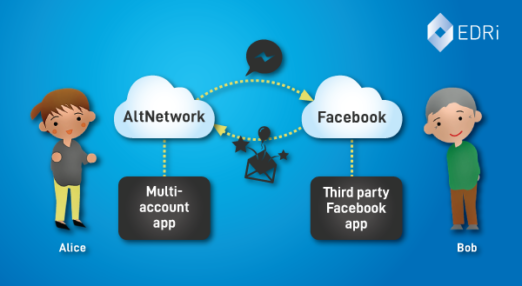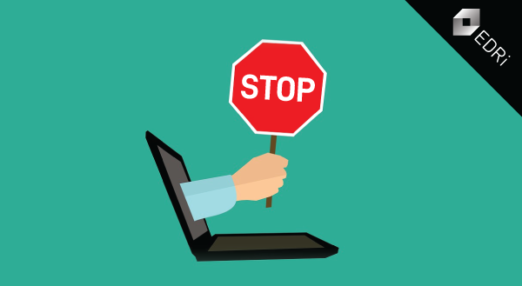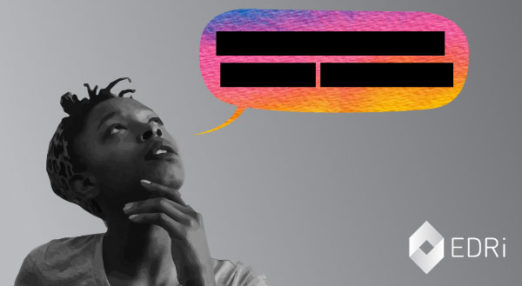Information democracy
Powerful companies and governments control the way the internet and new technologies are deployed. These actors blur the lines on corporate power in ways that have tremendous impact on people and democracies. The dominant business model of ‘Big tech’ platforms is based on surveillance, polarization and power imbalances. This ‘surveillance capitalism’ has had a global impact on democracy. For example, state and private actors can use the internet and technologies to spread political disinformation, to manipulate electoral results, to attack human rights defenders and to limit civic space.
Filter resources
-

Interoperability: A way to escape toxic online environments
The political debate on the future Digital Services Act mostly revolves around the question of online hate speech and how to best counter it. Whether based on state intervention or self-regulatory efforts, the solutions to address this legitimate public policy objective will be manifold. In its letter to France criticising the draft legislation on hateful […]
Read more
-

France’s law on hate speech gets a thumbs down
France’s draft legislation on hate speech (also called the “Avia law”) received a lot of criticism. The draft law was approved in July 2019 by the French National Assembly and will be examined by the Senate in December. It would oblige platforms to remove flagged hateful content within 24 hours or face fines. The Czech […]
Read more
-

A privately managed public space?
Our “public spaces” online where we meet each other, organise, or speak about social issues, are often controlled and dominated by private companies (platforms like Facebook and YouTube). Pushing platforms to decide which opinions we are allowed to express and which not is not going to solve major problems in our society. The EU rules […]
Read more
-

Hate speech online: Lessons for protecting free expression
On 21 October, David Kaye – UN Special Rapporteur on the promotion and protection of the right to freedom of opinion and expression – released the preliminary findings of his sixth report on information and communication technology. They include tangible suggestions to internet companies and states whose current efforts to control hate speech online are […]
Read more
-

EU Commissioners candidates spoke: State of play for digital rights
On 1 November 2019, the new College of European Commissioners – comprising 27 representatives (one from each EU Member State), rather than the usual 28, thanks to Brexit – are scheduled to take their seats for the next five years, led by incoming President-elect, Ursula von der Leyen.
Read more
-

#PrivacyCamp20: Technology and Activism
The 8th annual Privacy Camp will take place in Brussels on 21 January 2020. With the focus on “Technology and Activism”, Privacy Camp 2020 will explore the significant role digital technology plays in activism, enabling people to bypass traditional power structures and fostering new forms of civil disobedience, but also enhancing the surveillance power of […]
Read more
-

Net neutrality overhaul: 5G, zero-rating, parental control, DPI
The Body of European Regulators for Electronic Communications (BEREC) is currently in the process of overhauling their guidelines on the implementation of the Regulation (EU) 2015/2120, which forms the legal basis of the EU’s net neutrality rules. At its most recent plenary, BEREC produced new draft guidelines and opened a public consultation on this draft. […]
Read more
-

EU copyright dialogues: The next battleground to prevent upload filters
On 15 October, the European Commission held the first of the stakeholder dialogues, mandated by Article 17 of the EU copyright Directive, inviting 65 organisations to help map current practices, and opening the door for deeper collaboration in the future.
Read more
-

Why weak encryption is everybody’s problem
Representatives of the UK Home Department, US Attorney General, US Homeland Security and Australian Home Affairs have joined forces to issue an open letter to Mark Zuckerberg. In their letter of 4 October, they urge Facebook to halt plans for end-to-end (aka strong) encryption across Facebook’s messaging platforms, unless such plans include “a means for […]
Read more
-

Content regulation – what’s the (online) harm?
In recent years, the national legislators in EU Member States have been pushing for new laws to combat negative societal phenomena such as hateful or terrorist content online. These regulatory efforts have one common denominator: they shift the focus from conditional intermediary liability to holding intermediaries directly responsible for the dissemination of illegal content on their platforms.
Read more
-

CJEU ruling on fighting defamation online could open the door for upload filters
Today, on 3 October 2019, the Court of Justice of the European Union (CJEU) gave its ruling in the case C‑18/18 Glawischnig-Piesczek v Facebook. The case is related to injunctions obliging a service provider to stop the dissemination of a defamatory comment. Some aspects of the decision could pose a threat for freedom of expression, in particular that of political dissidents who may be accused of defamatory practices.
Read more
-

CJEU on cookies: ‘Consent or be tracked’ is not an option
European Digital Rights (EDRi) welcomes the CJEU's confirmation that under the current data protection framework, cookies can only be set if users have given consent that is valid under the General Data Protection Regulation (GDPR).
Read more
